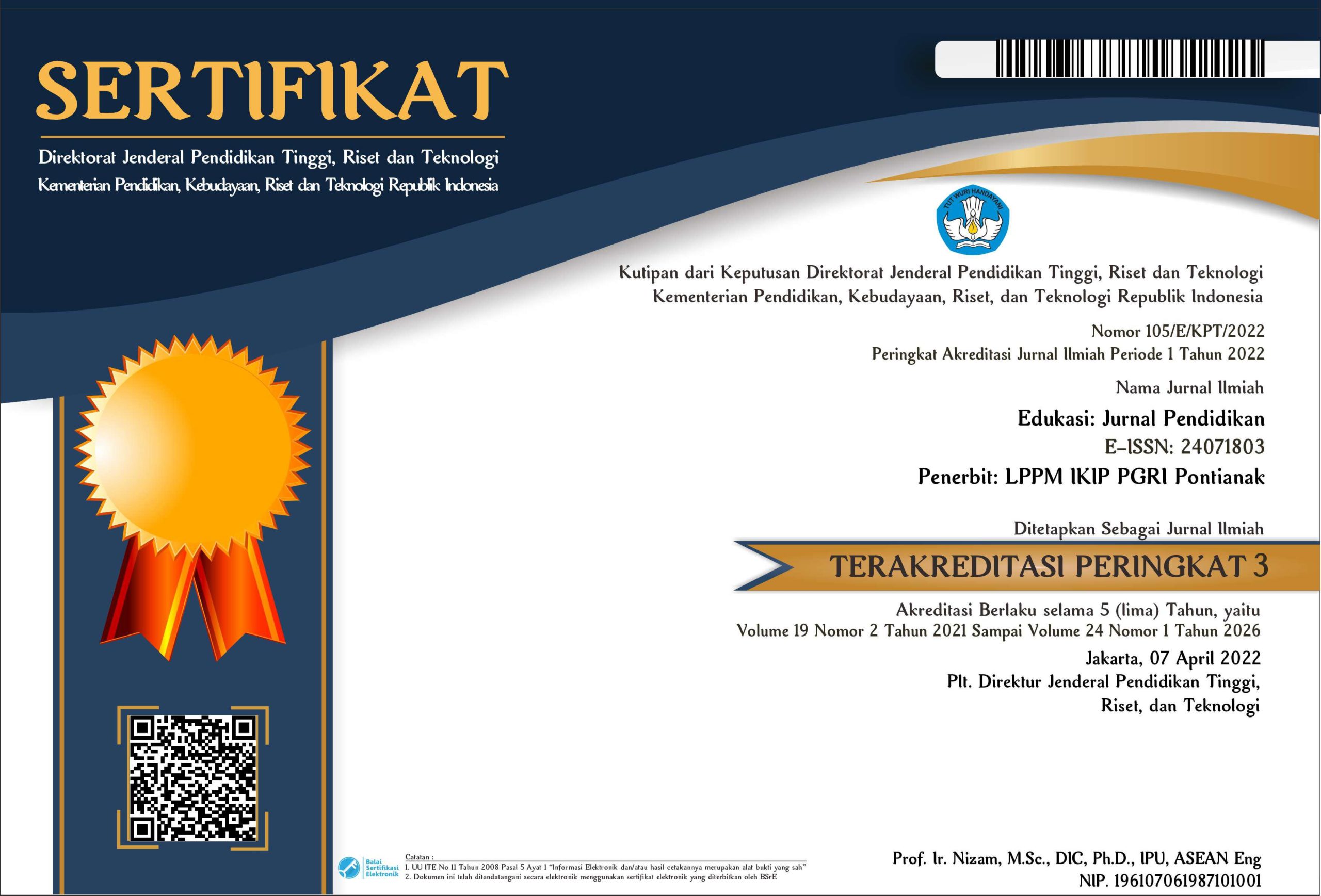EFEKTIVITAS MODEL PEMBELAJARAN QUANTUM TEACHING DALAM PENINGKATAN HASIL BELAJAR TEKNOLOGI INFORMASI DAN KOMUNIKASI
DOI:
https://doi.org/10.31571/edukasi.v14i2.358Keywords:
Quantum Teaching, hasil belajar, aktivitas belajar, responAbstract
Penelitian ini bertujuan untuk mengetahui: (1) hasil belajar siswa; (2) aktivitas belajar siswa; (3) respon siswa; dan (4) peningkatan hasil belajar siswa pada materi Perangkat Keras Komputer setelah menggunakan Quantum Teaching. Bentuk penelitian adalah Pra-Eksperimen dengan populasi penelitian adalah seluruh siswa kelas VII yang terbagi menjadi 6 kelas. Sampel penelitian adalah kelas VII B dengan menggunakan teknik Purposive Sampling. Alat pengumpulan data menggunakan tes, lembar observasi, dan angket. Teknik analisis data menggunakan statistik deskriptif dan uji-t. Hasil penelitian menunjukkan: (1) hasil belajar siswa setelah menggunakan Quantum Teaching secara klasikal adalah 78,12% sehingga dinyatakan tuntas; (2) aktivitas belajar siswa saat menggunakan Quantum Teaching memiliki nilai rata-rata 78,95% sehingga tergolong sangat aktif; (3) respon siswa setelah menggunakan Quantum Teaching diperoleh persentase terbesar pada kategori sangat setuju dengan 42,41%; dan (4) terdapat peningkatan hasil belajar siswa setelah menggunakan Quantum Teaching pada materi Perangkat Keras Komputer.
Downloads
Downloads
Published
How to Cite
Issue
Section
License
Authors who publish in this journal agree to the following terms:
- Authors retain copyright and grant the journal the right of first publication with the work simultaneously licensed under a Creative Commons Attribution License (CC-BY-NC) that allows others to share the work with an acknowledgment of the work's authorship and initial publication in this journal.
- Authors are able to enter into separate, additional contractual arrangements for the non-exclusive distribution of the journal's published version of the work (e.g., post it to an institutional repository or publish it in a book), with an acknowledgment of its initial publication in this journal.
- Authors are permitted and encouraged to post their work online (e.g., in institutional repositories or on their website) prior to and during the submission process, as it can lead to productive exchanges, as well as earlier and greater citation of published work.

 Download: 133
Download: 133


















